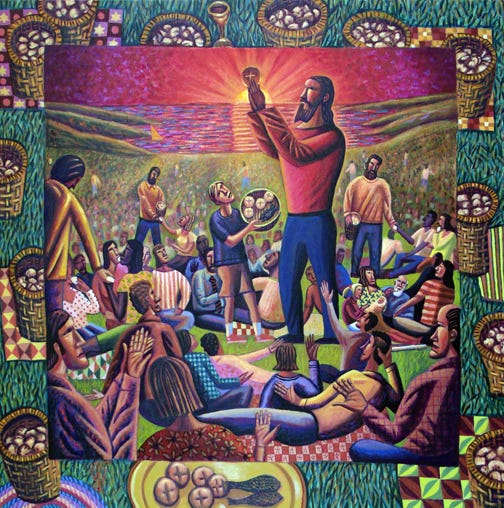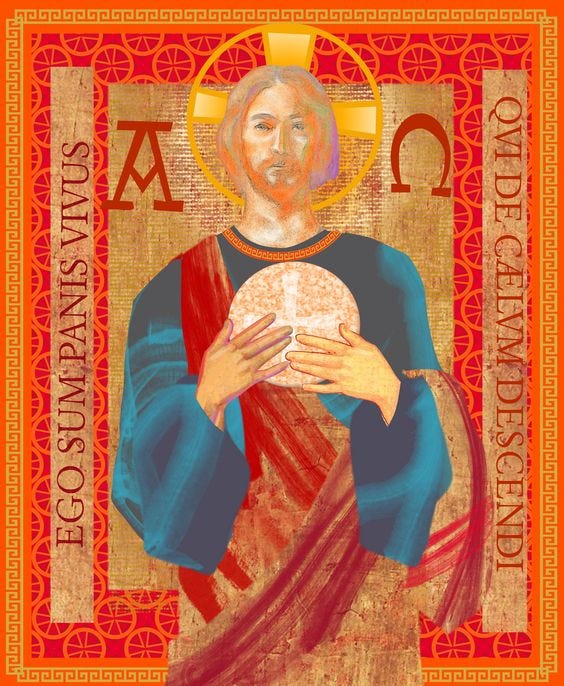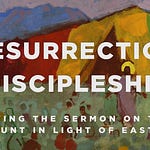When asked what we believe or think about a specific topic, many of us respond with statements acknowledging what we believe and clarifying what we do not believe. If asked about what we believe about Jesus, we might say something like, “Jesus is my friend,” or, “Jesus is love,” or “I believe Jesus Christ came to extend the fullness of the Grace of God and did not come to condemn.” When interviewing candidates for ordination, I will ask them to explain what they believe happens to the elements – the bread and wine - during communion. I would expect to hear something like, "I believe that something happens to the bread and wine when they are blessed but that they do not become the literal body and blood of Christ.” I might ask the same candidate to explain who Jesus is, and they might say, “I believe that Jesus Christ is the Son of God, the Word of God Made Flesh, and that no one comes to the Father but through Christ.”
This formula for statements is not limited to matters of religion and faith. We make similar statements about our political leanings as we approach a national election. "I am for this candidate and not that one." "I am for this policy or initiative and not that one."
Even in the monotony of daily living, we might want to ensure that when asked, people know we prefer a specific brand over another or a sports team over another. "Because I am an Orioles fan," I might say, "there is no way I could ever be a Yankees fan or worse, a Red Sox fan."
We find Jesus today in the aftermath of his challenge to those in the crowd who followed him after the miraculous feeding of the five thousand. Some in the crowd mocked Jesus because they knew him as Mary and Joseph's boy. How could Jesus be from heaven if they had seen him strolling the streets of downtown Nazareth? Their struggle to understand the connection between the feeding of the five thousand and Moses leading Israel out of Egypt needed further clarification on their understanding of who Jesus is and what he is saying.
The confrontation culminated in Jesus’s “I am” statement – “I am the bread of life. Whoever comes to me will never be hungry, and whoever believes in me will never be thirsty.”[i]
In the gospels, especially in his teachings, Jesus can come off as “cagey, evasive, and indirect,”[ii] writes Will Willimon. There are moments in Jesus’s ministry and teaching where we wish he would be more direct and clear about the meaning of what he is doing and saying. Today is not one of those days. In a moment of divine clarity, Jesus tells the crowd, “I am the bread of life.”[iii]
How can it be that Jesus of Nazareth is the bread of life? The bread from heaven? How can this man be who he says he is? Wait, how did he just do that?
There are times when the gospel can sound like Greek philosophy or "high-sounding talk" about God, but Jesus has a way of cutting through our efforts to overcomplicate God. Jesus makes clear to us that the labels of “this” and “not that” make little sense in the Kingdom of God.
What we know about him, Jesus tells us, is a gift from God. Our awareness of the everyday workings of the Holy Spirit is a divine gift that not only reveals to us who Jesus is and who he is not but the physical presence of Christ in our lives. This profound truth is a testament to the divine gift that Jesus is in our lives. Perhaps this is why Jesus said, “The wind blows where it chooses, and you hear the sound of it, but you do not know where it comes from or where it goes. So it is with everyone who is born of the Spirit.”[iv]
We cannot control how God will reveal the presence of Christ to us in the same ways we might try to control how we reveal ourselves to others.
“I am the bread of life.”
“I am the bread of life that came down from heaven.”
“The bread I give is for the life of the world.”
When asked about heaven or eternal life, I am tempted to respond with “high-sounding talk” that makes good use of my seminary education. It is what you expect of your pastor, right?
Jesus does not explain himself in terms of who he is not or high theology. Instead, he says I am bread that will sustain you. I am bread that gives you new life. I am bread for the world.
Standing before the crowd, standing before use, in the flesh is the fullness of God. If you have ever wondered what God looks like, look at the altar and the bread that sustains. If you have ever wondered how God acts or talks, look to Christ, who invites all of us to taste and see what life looks like in the fullness of God.
Anne Lamont wrote, “The opposite of faith is not doubt, but certainty.”
We want our spiritual desires and theological questions answered with certainty, but instead, Jesus offers us bread. In a simple meal of bread and wine, Jesus promises to nourish and sustain the world.
Jesus is the bread that the world desperately needs, even while He is the One we frequently turn from. And still, the invitation remains—to taste and see that the Lord is good. This invitation is a testament to the open arms of Jesus, always ready to nourish and sustain. The world will tell you that you must be for this and not that. Yet, Jesus tells us that he is bread, he is life for the world, and he is bread, he is life for you.
[i] John 6:35
[ii] Feasting on the Word, Year B, Volume 3. Page 335
[iii] John 6:35
[iv] John 3:8

















Share this post